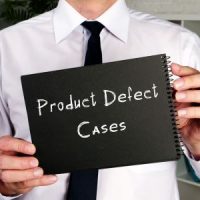Can You File A Product Liability Lawsuit About An Experimental Therapy?

Product liability laws give consumers the right to seek damages if they suffer injuries while using a consumer product for its intended purpose or taking a prescription medication as directed. Product liability lawsuits are the reason that over-the-counter medications like Theraflu contain warning labels about their acetaminophen content; patients took Theraflu and Tylenol together, suffering accidental overdoses on acetaminophen. Likewise, Johnson and Johnson has faced product liability lawsuits from women who developed ovarian cancer from using its talcum powder. Product manufacturers have a legal responsibility to ensure that their products are safe before marketing them, including doing adequate research on the safety of the products before making them commercially available. What about experimental treatments, though, where the patient knows that the medical community has not reached a consensus about the safety of the drug or medical device? If you became seriously ill from a prescription drug, over-the-counter medication, or medical device, contact a Jacksonville defective product lawyer.
Patient Sues Syringe Manufacturer After Going Blind From Stem Cell Injections
Stem cells, which are abundant in every person’s body at every stage of life, theoretically hold enormous potential for the treatment of otherwise incurable illnesses, but thus far the medically accepted and clinically available stem cell treatments are few. U.S. Stem Cell Clinic in Sunrise, Florida, offers stem cell treatments for the treatment of age-related macular degeneration, which is incurable progressive vision loss in the elderly. The clinic takes stem cells from the patient’s skin and subcutaneous fat and then injects them into the patient’s eyes.
In 2015, Jeannine Mallard traveled from her home in France to receive stem cell therapy at the U.S. Stem Cell Clinic. The doctors told her that the worst possible outcome from the treatment was the status quo; if the treatment didn’t work, Mallard’s vision would continue to deteriorate as it had been doing, but if it worked, her vision would stop getting worse, and she would be able to see with her current eyeglasses prescription indefinitely. After Mallard received the injections, though, her vision rapidly got worse in both eyes until she was completely blind. Her right retina also detached, and she eventually had to have her right eye removed.
Mallard sued U.S. Stem Cell Clinic for medical malpractice and Pavilion Foods, the maker of the syringes used for the injections, for product liability. She alleged that the syringes from which her injections were administered were not safe for use on humans and were only made for in vitro experiments. To make matters worse, the owner of Pavilion Foods is a close family member of the U.S. Stem Cell Clinic.
Contact Douglas & Douglas About Product Liability Cases
A North Florida defective products lawyer can help you recover damages if you suffered a serious injury because of an unsafe consumer product, such as a car part, prescription drug, personal care product, or medical device. Contact Douglas & Douglas in Jacksonville, Florida for a free consultation.
Source:
abcactionnews.com/news/local-news/i-team-investigates/new-lawsuit-against-us-stem-cell-after-patient-loses-vision-family-ties-called-into-question





